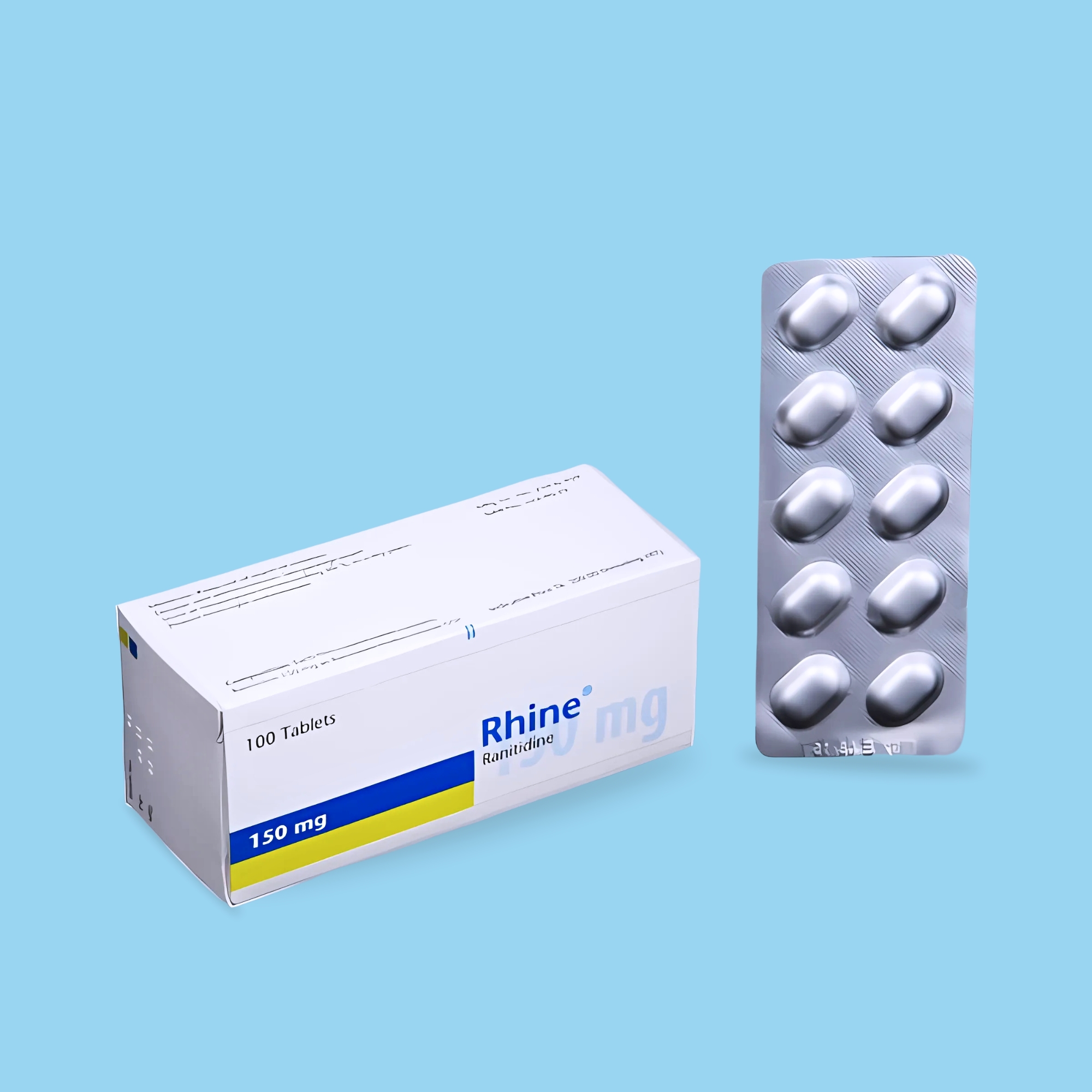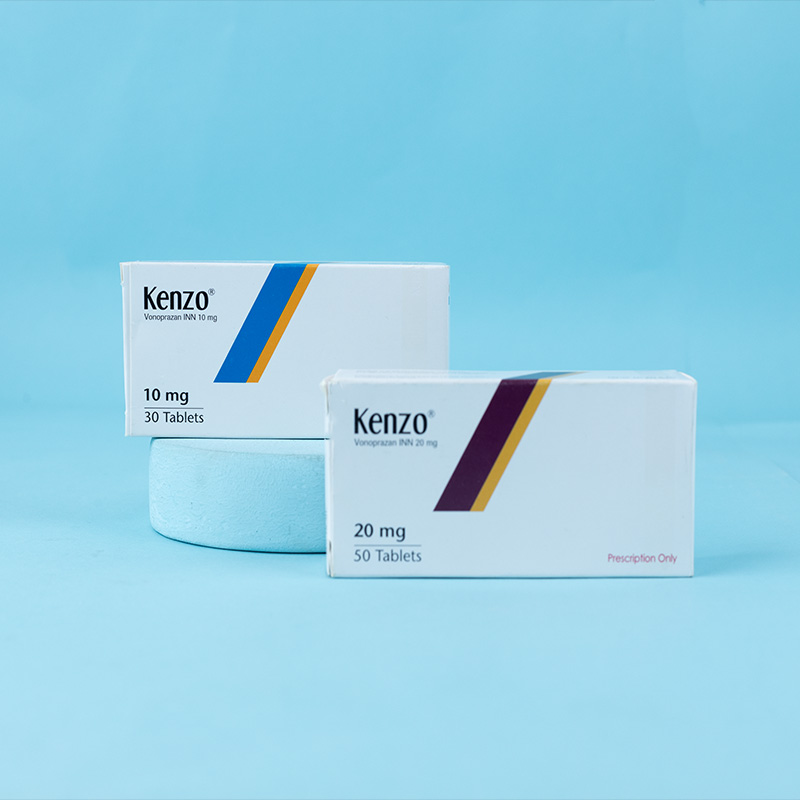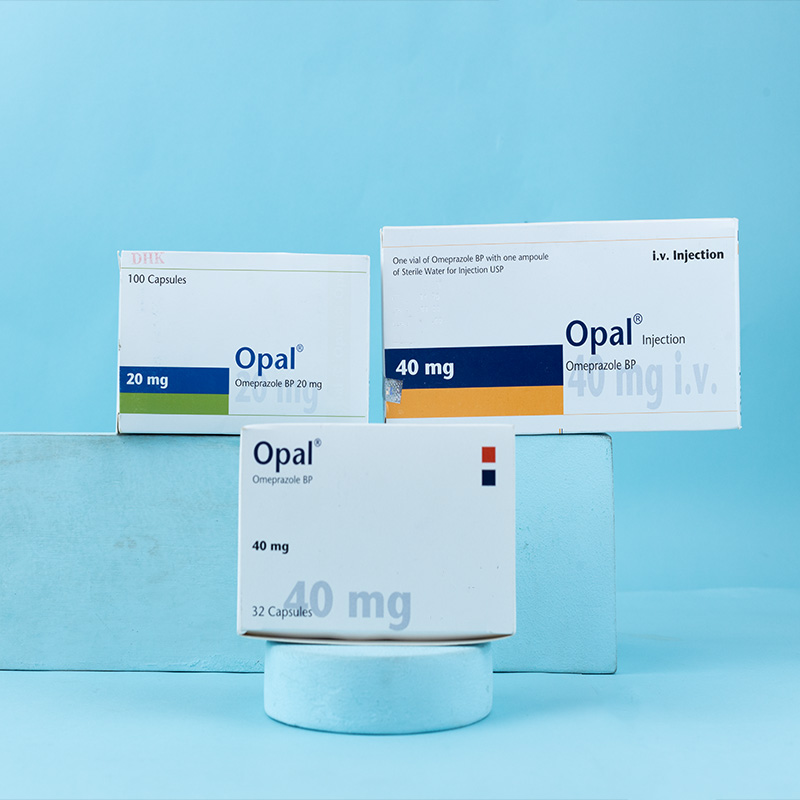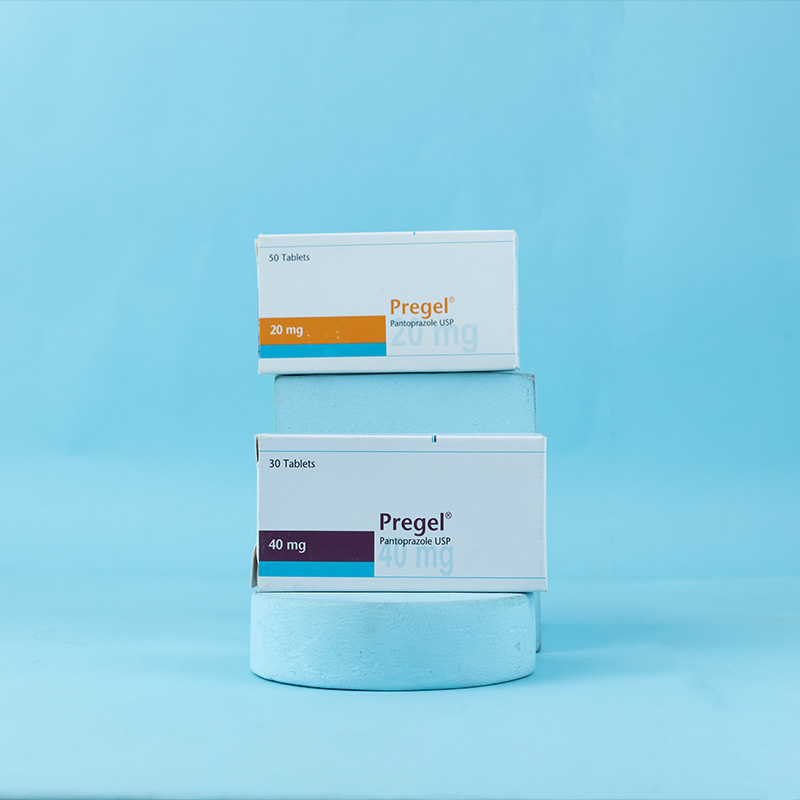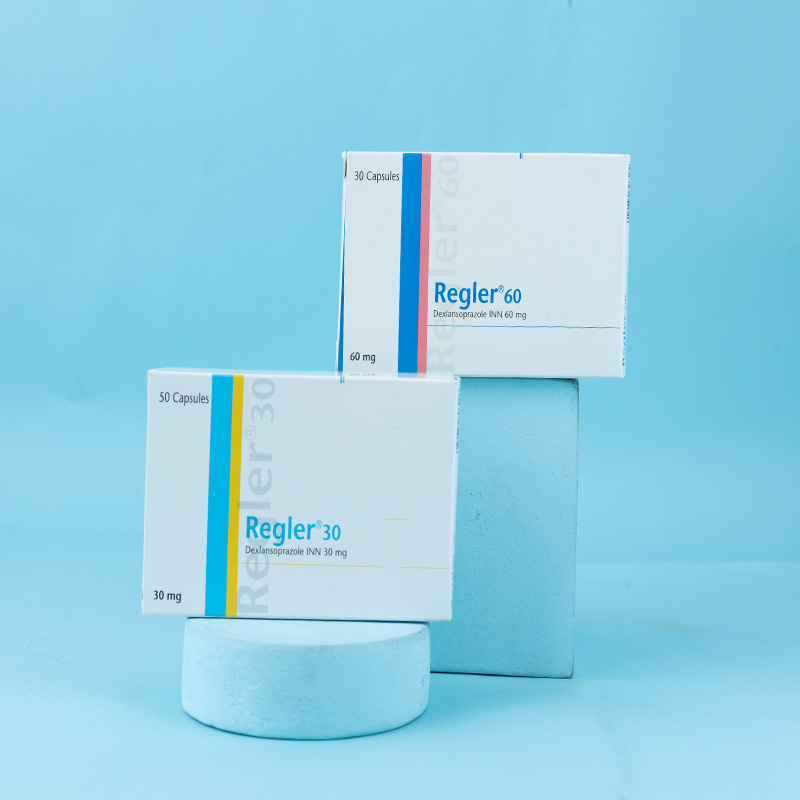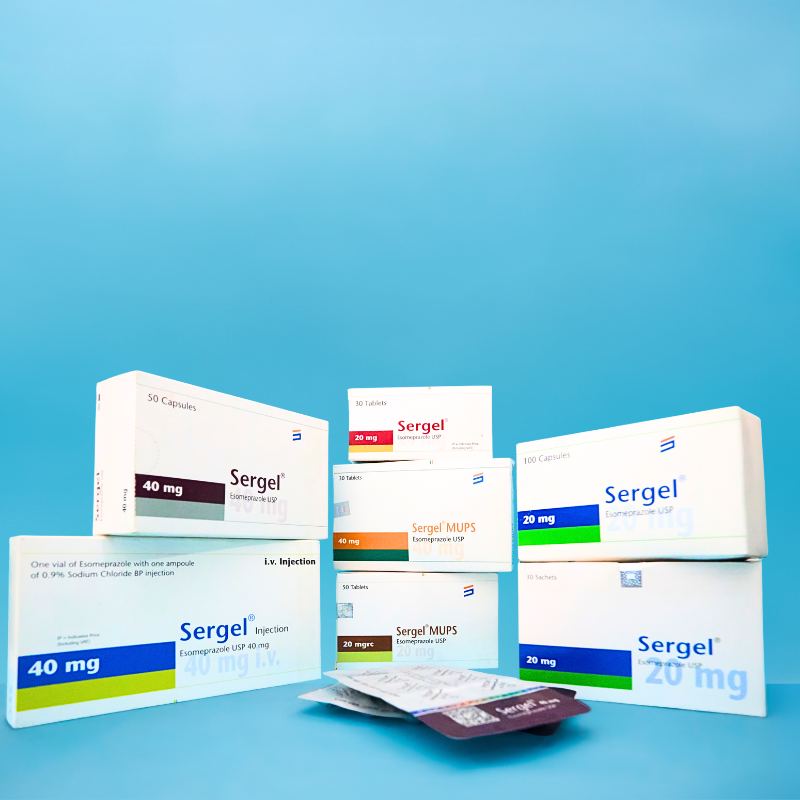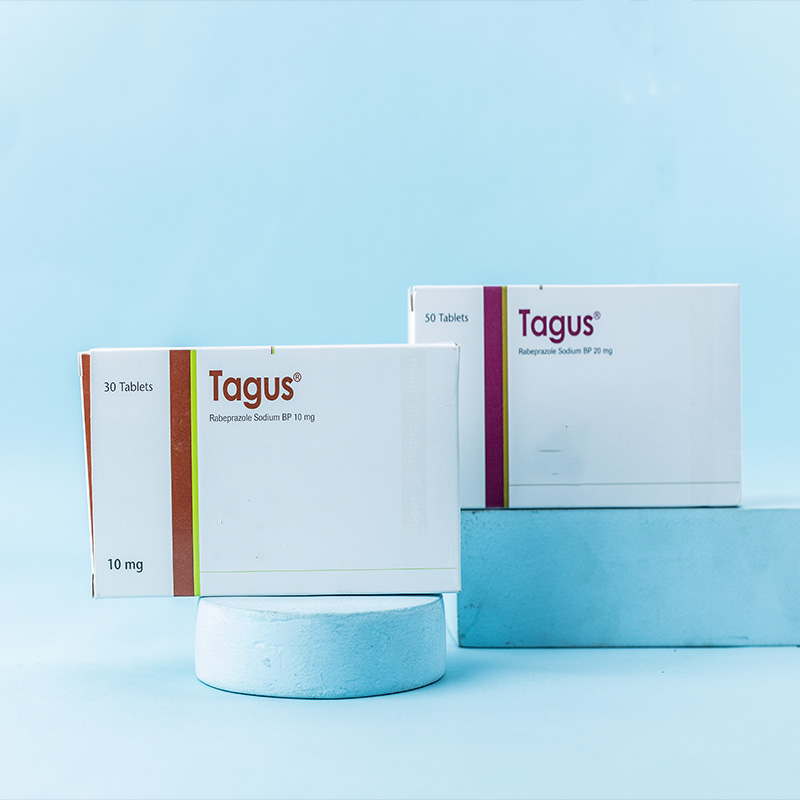◗ Treatment of active duodenal ulcer
◗ Benign gastric ulcer
◗ Treatment & prevention of ulcers associated with non-steroidal anti-inflammatory agents
◗ Post-operative stress ulcer
◗ Zollinger-Ellison Syndrome
◗ Gastroesophageal reflux disease (GERD)
◗ Gastrointestinal hemorrhage from stress ulcers in seriously ill patients
◗ Recurrent hemorrhage in patients with bleeding peptic ulcers
◗ Before general anesthesia in patients considered to be at risk of acid aspiration, particularly obstetric patients

Rhine® (Ranitidine) is a specific, rapidly acting histamine H₂ receptor antagonist. It inhibits both basal and stimulated secretion of gastric acid.
Rhine® (Ranitidine) has a relatively long duration of action, and a single 150 mg dose effectively suppresses gastric acid secretion for twelve hours.

As a group, H₂-antagonists are rapidly and well absorbed after oral administration; peak plasma concentrations are attained within 1 to 2 hours.
The elimination half-life of Ranitidine is 2 to 3 hours. These drugs are largely excreted in the urine without being metabolized. However, the half-life of Ranitidine is significantly prolonged in patients with hepatic dysfunction.

Adults: The usual dose of Rhine® (Ranitidine) is 150 mg twice daily (in the morning and at bedtime).
For the management of duodenal and gastric ulcers, a single daily dose of 300 mg at bedtime can be given as an alternative to twice-daily administration. Treatment should be given initially for at least four weeks. Where appropriate, a maintenance dose of 150 mg daily may be given at bedtime.
For reflux oesophagitis, the recommended dose is 150 mg twice daily or 300 mg at bedtime for up to eight weeks.
For pathological hypersecretory conditions such as Zollinger-Ellison Syndrome, the initial dose is usually 150 mg twice or thrice daily and may be increased up to 6 g daily.

Rarely, dizziness, insomnia, reversible mental confusion, depression, diarrhea, nausea, vomiting, and abdominal discomfort may occur.
Hallucinations have been reported, predominantly in severely ill elderly patients. Other rare side effects include hepatitis, anaphylactoid reactions, thrombocytopenia, and leucopenia.

Since Rhine® (Ranitidine) is excreted primarily by the kidneys, the dosage should be adjusted in patients with impaired renal function. Caution should also be taken in patients with hepatic dysfunction.

Increased or decreased prothrombin times have been reported during concurrent use of Rhine® (Ranitidine) and Warfarin. However, in human pharmacokinetic studies with doses of Ranitidine up to 400 mg per day, no interaction occurred.
The combined use of Ranitidine and Sucralfate should be avoided because the latter works best in an acidic medium. The absorption of Ketoconazole is decreased when used with Rhine® (Ranitidine).

The safety of Rhine® (Ranitidine) during pregnancy has not been established. This drug should be used during pregnancy only if clearly needed.
Ranitidine is secreted in human milk; therefore, caution should be exercised when administering it to nursing mothers.

Rhine® (Ranitidine) is contraindicated in patients who are hypersensitive to Ranitidine.

Store in a cool and dry place below 30ºC. Protect from light.
Medicine: Keep out of reach of children.


